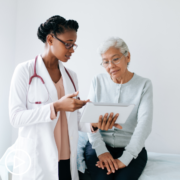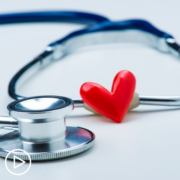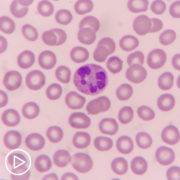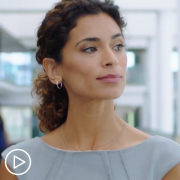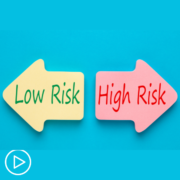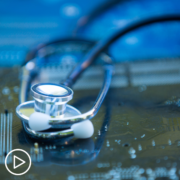Are There Non-Pharmacologic Strategies for Managing Myeloproliferative Neoplasms?
Are There Non-Pharmacologic Strategies for Managing Myeloproliferative Neoplasms? from Patient Empowerment Network on Vimeo.
What non pharmacologic strategies for managing myeloproliferative neoplasms are recommended? Dr. Gabriela Hobbs shares her approach in talking with her patients.
Dr. Gabriela Hobbs is a hematology-oncology physician specializing in the care of patients with myeloproliferative neoplasms (MPN), chronic myeloid leukemia, and leukemia. Dr. Hobbs serves as clinical director of the adult leukemia service at Massachusetts General Hospital and is an assistant professor at Harvard Medical School.
Natasha Johnson, is an Advanced Oncology Nurse Practitioner at Moffitt Cancer Center, where she cares for people living with MPNs with kindness, patience, and humanity. Natasha also speaks at conferences to educate other healthcare professionals about MPN care, research, and treatment.
See More from Empowering MPN Providers to Empower Patients (EPEP)
Related Resources
Transcript:
Nicole Rochester, MD:
Dr. Hobbs, are there any non-pharmacologic strategies that you endorse? And I’m asking you specifically because I think a lot of times, patients and care partners think that physicians aren’t well-versed in non-pharmacologic therapies or that we don’t endorse non-pharmacologic therapy. So I’m curious to know if there are any that you tend to recommend to your patients with MPNs.
Gabriela Hobbs, MD:
I love this question, and I’m glad to have an opportunity to talk about it, and I loved everything that Ms. Johnson said. For many years, I’ve felt in my practice like I’m a primary care doctor and I’m talking to patients about diet and exercise, [chuckle] especially for the patients that have essential thrombocythemia and polycythemia vera or low-risk myelofibrosis, those diseases really are diseases that I think about as another cardiovascular risk factor. And when we’re talking to patients that have cardiovascular risk factors, like obesity, like hypertension, like hyperlipidemia, diabetes, etcetera, what do we talk to them about? We talk about lifestyle modification. And I think that that fits in beautifully in the care of a patient with an MPN because there’s nothing like getting a diagnosis to take away control from your life. And so giving patients control back by saying, “Actually, you do have control over this disease by changing your lifestyle, by living an active healthy lifestyle and having a well-balanced diet,” I think can actually be very helpful.
One of the things that we don’t talk a lot about in MPNs, ’cause we’re focused on cell signaling and new fancy medications, is just the basics, lifestyle modification. And so I’m a huge fan of that holistic approach. I loved what Ms. Johnson said about, “Don’t let yourself be defined by this disease.” Let’s really find a way of improving your quality of life and maximizing how you live your days. And so I think talking to them about lifestyle modification is something that is really near and dear to my heart. We have a clinical trial now helping patients to really change their lifestyle, get more active and eat more healthily, and I think that those things are actually really, really important. Many of my patients, the first thing they do when they get diagnosed is they want to go and find that magical supplement that’s going to change their natural history of their disease. And although I can’t really say if any of those supplements are going to be helpful or not, I can for sure say that there is no harm, and there’s probably benefit to staying active and also to having a more plant-based, less processed food diet. And I think that that really goes a long way in terms of helping patients to improve their symptoms, feel less tired and feel less anxious, also feel like they have more control over what’s going on with them.
Share Your Feedback:
Create your own user feedback survey

